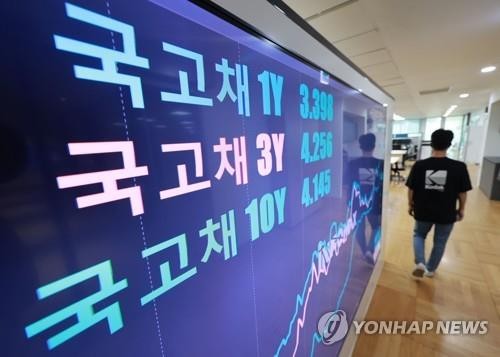SEOUL, April 9 (Yonhap) — South Korea’s inclusion in a key global government bond index managed by FTSE Russell has been delayed from November 2025 to April 2026, the Seoul government said Wednesday.
Full integration in the World Government Bond Index (WGBI) is still expected to be completed by November 2026 as previously announced last year, the finance ministry said in a press release, citing FTSE Russell’s latest review report.
“Based on feedback from index stakeholders, FTSE Russell has announced details of a refined technical inclusion approach with the inclusion phased in over a shorter eight-month period, in eight equal monthly tranches, commencing with April 2026 index profiles and completed with November 2026 index profiles, in line with previously announced completion dates,” the report said.
Kim Jae-hwan, a senior official at the ministry, said that if the delay had been caused by political uncertainty or issues within the bond market itself, FTSE Russell would have considered other alternatives, such as postponing the final inclusion date.
“We believe that political uncertainty has had no impact on the timing of the inclusion,” he emphasized, referring to former President Yoon Suk Yeol’s brief imposition of martial law in December and his subsequent impeachment.
FT Russell said the refinement of the inclusion approach is reflective of several factors, including feedback that additions of monthly tranches rather than quarterly tranches would offer an additional element of ease and simplicity for portfolio managers.
In recent months, South Korea has faced political instability, coupled with rising trade frictions following tariff measures imposed by U.S. President Donald Trump’s administration, which have weighed down the country’s export-dependent economy.
The London-based index provider noted “continued strong support” for South Korea’s inclusion from market participants and commended the commitment of South Korean market authorities and infrastructure providers to ensure a smooth and frictionless integration into the index.
FTSE Russell announced South Korea’s inclusion in the WGBI last October.
The Seoul government has estimated that the move could attract up to 80 trillion won (US$54 billion) to the domestic bond market, addressing the long-standing “Korea discount” issue in both the bond and foreign exchange markets.
The Korea discount refers to the persistent undervaluation of South Korean companies compared with their global counterparts, often attributed to low dividend payouts and the dominance of chaebol, or family-run conglomerates.


